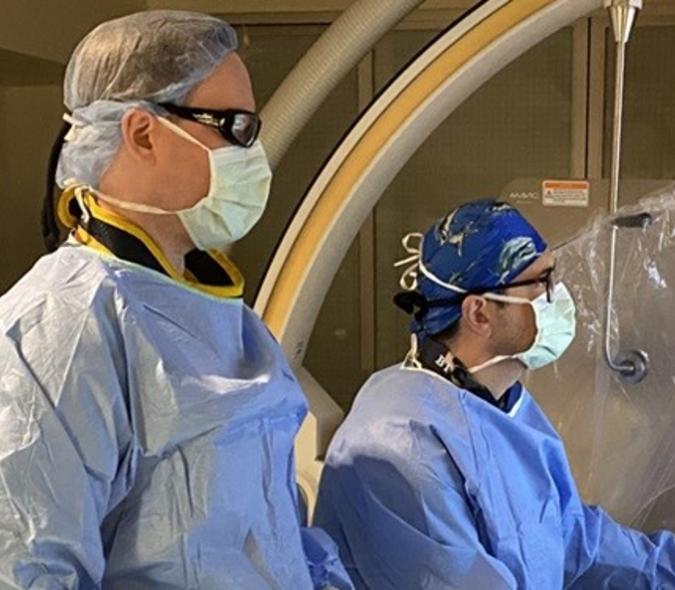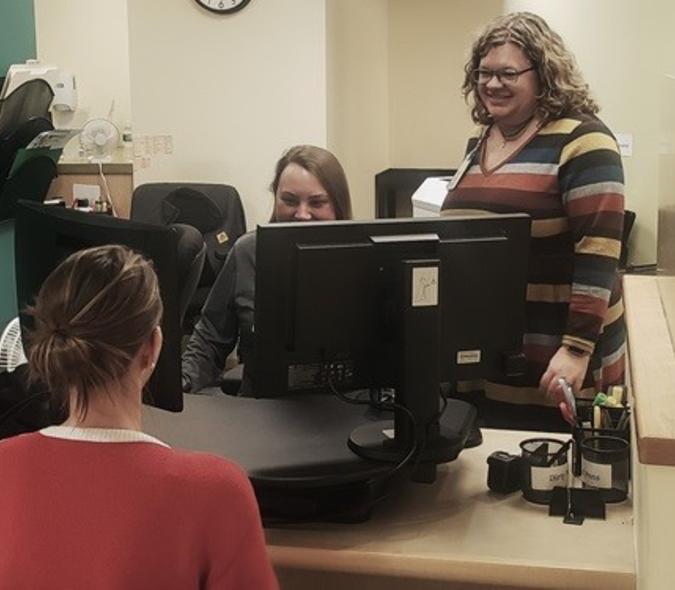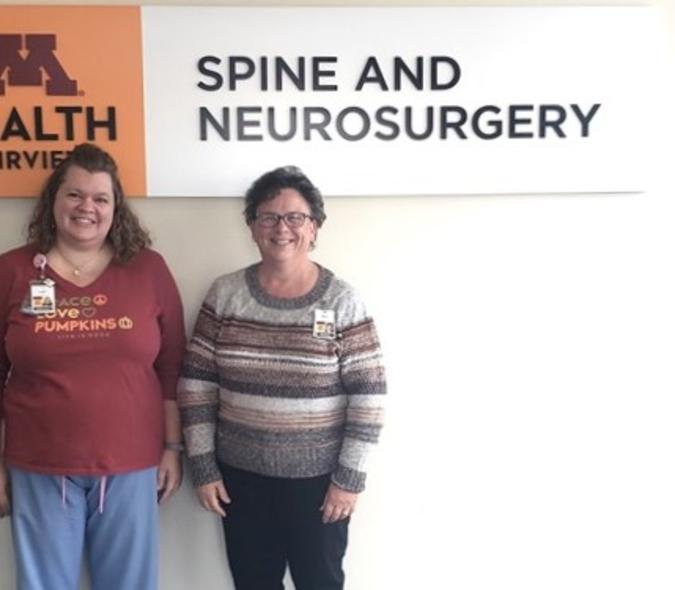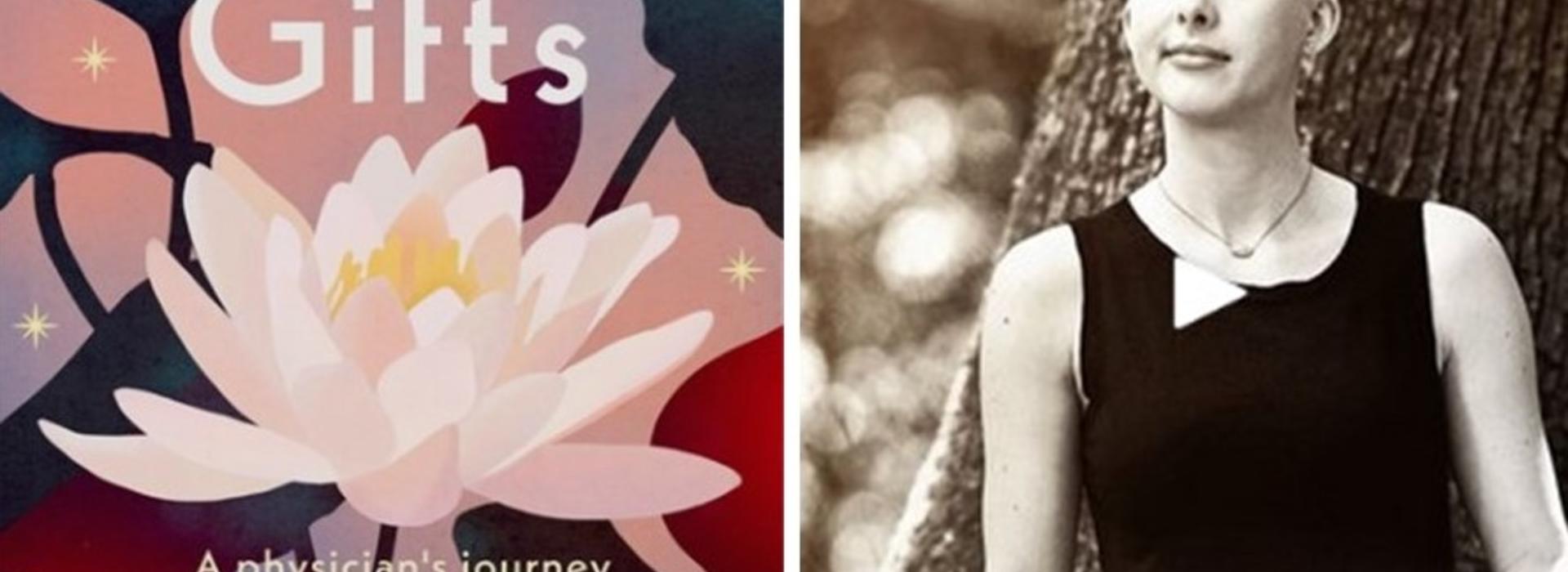
Brain tumor patient sees her diagnosis as a “difficult gift” that enables her to help others
In January 2020, Courtney Burnett, MD, was in her third and final year of an Internal Medicine residency at the U of M. She had chosen to spend a month in Thailand and explore different types of Eastern medicine to supplement her training. She was in Chiang Mai, the largest city in northern Thailand.
During the third week of her visit, Courtney began to have what she described as “strange neurological symptoms.” She experienced cramping and tingling in her left hand, followed by the sensation of her throat tightening, preventing her from swallowing. The symptoms would last about 30 seconds.
Medical mode
“After it happened eight more times over the next week, I found myself switching into medical mode,” Courtney thought these episodes could be seizures. “Some of my colleagues in Thailand agreed with me,” she said. “I asked to go see a neurologist and also requested an MRI of my brain. That’s when the brain tumor was identified.” She was 29 years old.
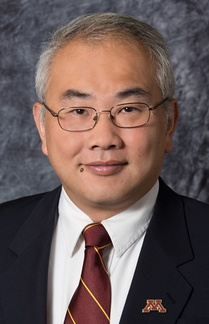
Understanding the serious nature of this finding, Courtney felt her biggest priority was to get back to Minnesota. She was connected with University of Minnesota Neurosurgery Department Head, Clark C. Chen (pictured here), MD, PhD. Through electronically transmitted images and international calls, Dr. Chen evaluated Courtney’s MRIs, reviewed the next steps with her, and coordinated her transfer to the M Health Fairview University of Minnesota Medical Center (MHFV-UMMC).
Dr. Chen greeted Courtney at MHFV-UMMC upon arrival and reviewed the plan of care with her and her family. “He and his team coordinated with people at the U and in Thailand to arrange for my direct admission into his care,” said Courtney. “I had the feeling he would be wonderful to work with.”
Resection aided by real-time MRIs
Courtney underwent a robotic-assisted biopsy that revealed she suffered from a rare form of brain cancer. After she recovered from the biopsy, Dr. Chen performed Courtney’s brain tumor resection with the aid of the only 3 Tesla intraoperative MRI in Minnesota. “The location of Courtney’s tumor made for a very difficult resection,” he said. “The real-time MRIs taken during the surgery provided detailed visualizations and allowed me to safely resect all of the visible tumor.”
Pathological analysis of the samples taken from the extended surgery showed that Courtney’s tumor was more aggressive than revealed by the initial biopsy. “That changed my tumor’s rating to grade three,” she said, which meant she would need to have follow-up radiation and chemotherapy.
No impairments
“Everything went very well,” she said. “I feel great and have no cognitive or physical impairments. I don’t want to minimize how challenging and scary the ordeal was, but I was lucky to have great care,” she said. “I’m still able to continue practicing medicine and to work fulltime.” Courtney is an internist at HealthPartners’ St. Paul, MN, clinic.
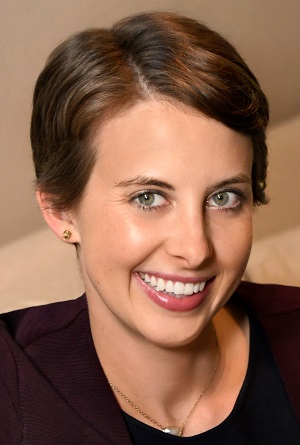
Because of how well Courtney’s treatment went, she became interested in raising awareness and providing support for brain tumor patients. The first step in her journey was to start a blog from her hospital bed. “It was during the peak of the pandemic, so I was alone in the hospital,” said Courtney (pictured here). “The blog, which is titled Elephant, Lotus, Brain Tumor, was designed to help my family and friends understand what was going on and how I felt about it. It has helped me as a young person going through this and connected me with thousands of people around the world who had brain tumors or cancer or chronic illness in general.”
Helping the community
The blog led to a book titled, Difficult Gifts: A Physician's Journey to Heal Body and Mind, published in February 2021, a year after her first surgery. Her work on the blog and the book led to speaking engagements and more recently, to one-on-one mentoring relationships with others who have brain cancer. “When you’re diagnosed, you feel very alone,” Courtney said. “There aren’t the resources available for us like there are for other cancers. I felt I could bring a different perspective to it, one of hope – that you can get through this and live the life you want to live, despite the diagnosis.”
When speaking to audiences about her experience, Courtney shares her spiritual perspective. “I’ve been taught that there is no right without a left, no joy without suffering,” she said. “Suffering is awful but if we're going to experience it, how do we find joy as well?”
Dr. Chen noted that, “Courtney has admirably navigated the challenges of a brain tumor diagnosis through the edifices of Eastern philosophy and Western medicine, drawing from her personal experiences as well as upon her innate empathy for her patients. She fortifies us with purpose and meaning as we confront the whims of life’s ‘difficult gifts.’ Her presence has been a blessing for my patients and for the brain tumor community in general.”
Courtney’s website (home of her blog, her book, and other resources)
